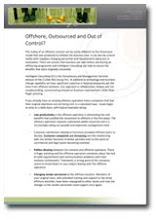“A
good project manager needs to be an inspirational leader, a diplomat, a good
organiser, a good communicator, a mediator and a motivator, thick-skinned,
focused and goal-oriented.” Whilst
this description of project management may seem like a tall order, it is
undeniably a multitalented and demanding role as those in the role itself or
looking to progress to management are well aware.
Finding out how you fare against
industry averages is naturally a burning question for any current or aspiring project
manager – so what do other project managers look like and what sort of profile
do they fit?
The Association for Project
Management (APM) have produced a market
trends survey of their membership which gives a well-rounded profile of
project managers in 2015.
Their report shows that their
average member earns a day rate of between £300 - £500 for contract workers. For
those working permanently you can expect to earn “between £40,000 - £49,000,
with the average salary of a project professional being £44,167 across all
industries and locations” having had around 15 years of project management
experience.
Of course variations between both
industry and geography play a part in creating this average with a majority of
those surveyed coming from an aerospace or consultancy background and living in
Greater London or the South-East. Those based in Greater London and Ireland were
(unsurprisingly) the largest share of high end earners (£100k+) compared to the
North East and South West.
What is also clear is that a
large proportion of high earning project managers held some form of
professional qualification as well as a degree and membership of a body related
to their career. APM noted that “as respondents move up the pay chart full-time
membership of a professional body such as APM becomes the main differentiator.”
Out of the APM members surveyed,
most were male and pay scales between genders changed dramatically towards the
higher end of the salary scale “6% of males earned £100,000 compared to only 1%
of females.” This gender ratio was reflected in the profile of the average
project manager member of APM which was male and between 35 to 44 years of age
and most likely working in an organisation with over 250 employees.
APMs survey and market trends for
2015 reveals interesting data about its members, whether this reflects upon the
wider market of those who work under the umbrella of project management remains
to be seen. Looking further afield, it lists the comparative success of other
managerial roles including change and programme managers who earn considerably
more than the average project manager.
Look out for the next blog in our
project management series where we give you some top tips to get ahead in your
career and progress to the next step…
To download the APM market and
trends survey from their website, you can visit the page here.













